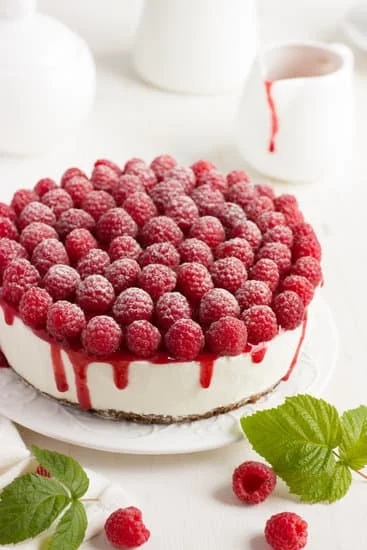When it comes to decorating a cake, one crucial question that often arises is: should I freeze my cake before decorating? Freezing a cake before decorating can actually have several benefits and significantly improve the overall outcome of the decoration process. Not only does it make the cake easier to work with, but it also helps reduce crumbs and lock in moisture, resulting in a better-looking and more delicious final product.
The benefits of freezing your cake before decorating are numerous. By freezing the cake, you make it firmer and less prone to crumbling, making it easier to handle and decorate. Additionally, freezing helps lock in the moisture of the cake, ensuring that it stays fresh and flavorful for longer. These advantages can ultimately lead to a neater and more professional-looking finished product, making all your hard work in decorating truly shine.
Certain types of cakes are better suited for freezing before decorating than others. Sponge cakes, butter cakes, and chiffon cakes are great candidates for this process as they tend to hold up well in the freezer.
Understanding which cakes are best suited for freezing can help you achieve better results when it comes to decorating. In the following sections, we will delve deeper into how to properly freeze a cake, address any concerns regarding taste alterations due to freezing, explore techniques for decorating frozen cakes, highlight common mistakes to avoid when freezing cakes, and share expert tips and tricks for achieving successful decorations.
Benefits of Freezing Your Cake
Freezing your cake before decorating can offer numerous benefits that can greatly enhance the overall outcome of your baking project. One of the key advantages is that freezing a cake makes it easier to work with during the decorating process.
A frozen cake is firmer and less likely to crumble, making it simpler to apply an even layer of frosting or to create intricate designs without causing damage to the cake itself. This can be particularly helpful when working with delicate cake layers or when using techniques that require precision.
Another significant benefit of freezing your cake before decorating is that it helps in reducing crumbs. When you freeze a cake, the moisture within the cake solidifies, creating a more stable structure.
This solidity minimizes the chances of crumbs forming on the surface of the cake while you are applying frosting or decorations. As a result, you can achieve a cleaner and more professional-looking finish on your cakes without having to worry about dealing with pesky crumbs getting in the way of your design.
In addition to making it easier to work with and reducing crumbs, freezing your cake also helps in locking in moisture. By freezing a cake before decorating, you are essentially preserving its freshness and moistness.
The cold temperature slows down any potential drying out of the cake, ensuring that it remains flavorful and enjoyable to eat even after being stored in the freezer for a period of time. This means that not only will your decorated cake look beautiful, but it will also taste just as delicious as when it was first baked.
Types of Cakes to Freeze
When it comes to deciding whether to freeze your cake before decorating, the type of cake you are working with plays a crucial role. Not all cakes are suitable for freezing, as some may not hold up well during the thawing process or may lose their texture and flavor. However, certain types of cakes can benefit greatly from being frozen before decorating. Sponge cakes, butter cakes, and chiffon cakes are among the best options for freezing.
Sponge Cakes
Sponge cakes are light and airy in texture, making them an ideal candidate for freezing before decorating. Freezing a sponge cake helps it firm up slightly, making it easier to work with when adding frosting or decorations. Additionally, freezing can help lock in moisture in sponge cakes, resulting in a moist and flavorful final product.
Butter Cakes
Butter cakes contain a higher fat content compared to other types of cakes, which gives them a rich and tender crumb. Freezing a butter cake can help it hold its shape better during the decorating process and prevent crumbs from forming. The cold temperature also allows the butter in the cake to solidify slightly, making it easier to apply frosting evenly.
Chiffon Cakes
Chiffon cakes have a light and fluffy texture similar to sponge cakes but also contain oil for added moisture. Freezing a chiffon cake can help maintain its delicate structure while making it more stable for decorating. The cold temperature can also help preserve the oil in the cake, keeping it moist even after thawing. Overall, these three types of cakes are great choices for freezing before decorating as they can enhance the overall appearance and taste of your finished creation.
Should I freeze my cake before decorating? When working with sponge cakes, butter cakes, or chiffon cakes, freezing can be a game-changer in achieving professional-looking results with ease. By understanding which types of cakes are best suited for freezing and following proper techniques for storage and thawing, you can elevate your decorating skills and create stunning desserts that will impress any crowd.
How to Properly Freeze a Cake
Step-by-Step Guide to Freezing a Cake
Freezing a cake before decorating can significantly help in making the decorating process easier and more efficient. To properly freeze a cake, start by allowing the cake to cool completely after baking. Once cooled, level the top of the cake if needed to create an even surface.
Next, carefully wrap the cake in several layers of plastic wrap to ensure it is tightly sealed and protected from any freezer odors. For added protection, place the wrapped cake in a resealable plastic bag or airtight container before placing it in the freezer.
Tips for Proper Storage and Thawing
When storing a cake in the freezer, make sure to place it on a flat surface where it won’t get squished or damaged. Additionally, labeling the container with the date of freezing can help keep track of how long it has been frozen.
When ready to decorate, allow the frozen cake to thaw overnight in the refrigerator for best results. Thawing at room temperature can cause condensation on the surface of the cake, which may affect its texture. Once thawed, you can proceed with decorating as usual.
Ensuring Success
Properly freezing a cake before decorating not only makes the process easier but also helps maintain the integrity of the cake’s structure. By following these step-by-step instructions and tips for wrapping, storage, and thawing, you can ensure that your frozen cake will be ready for flawless decoration. So next time you ask yourself “should I freeze my cake before decorating?” remember that proper freezing techniques can elevate your decorating game significantly.
Does Freezing Affect the Taste of the Cake
Freezing a cake before decorating can be a great way to streamline your baking process and ensure a beautifully decorated final product. However, many individuals are concerned about whether freezing their cake will negatively impact its taste. The good news is that when done correctly, freezing a cake should not significantly alter its flavor. By taking specific precautions, you can preserve the taste of your cake even after it has been frozen.
One key tip to preserve the flavor of a frozen cake is to ensure that it is wrapped tightly and securely before placing it in the freezer. This helps prevent any unwanted flavors or odors from seeping into the cake during the freezing process. Additionally, consider using high-quality wrapping materials such as plastic wrap or aluminum foil to provide an extra layer of protection against freezer burn.
Another important aspect to consider when freezing a cake is the length of time it spends in the freezer. Ideally, cakes should not be frozen for an extended period as this can affect their texture and taste. It is recommended to freeze cakes for up to one month for optimal results. By following these tips and guidelines, you can ensure that freezing your cake before decorating will not compromise its delicious flavor.
Decorating a Frozen Cake
When it comes to decorating a cake, working with a frozen base can actually make the process much smoother and more manageable. But many bakers may wonder, “Should I freeze my cake before decorating?” The answer is yes. Freezing your cake before decorating can help you achieve clean lines, prevent crumbs from ruining the frosting, and lock in moisture for a delicious end result.
Here are some techniques for decorating a frozen cake that will help you achieve professional-looking results:
- Smooth Frosting: When working with a frozen cake, the frosting is less likely to crumble or tear the cake layers. To achieve a smooth finish, consider using an offset spatula or bench scraper dipped in hot water to smooth out the frosting.
- Piping: Piping designs on a frozen cake can be easier and more precise since the surface is firmer. Make sure your piping bag is filled with room temperature frosting to avoid any blockages due to cold frosting.
- Adding Decorations: Whether you’re adding edible flowers, sprinkles, or fondant decorations, doing so on a frozen cake can make them adhere better and stay in place. Just keep in mind that if you’re using delicate decorations like fresh fruit or chocolate shavings, it’s best to add them just before serving.
With these techniques in mind, decorating a frozen cake should not only be easier but also yield more professional-looking results. So next time you’re preparing to decorate a cake, consider freezing it beforehand for a smoother decorating experience.
Common Mistakes to Avoid When Freezing Cakes
When it comes to freezing cakes before decorating, there are some common mistakes that many people make that can impact the final result of the cake decoration. By being aware of these common pitfalls and knowing how to avoid them, you can ensure that your cake turns out beautifully. Here are some of the most common mistakes to watch out for:
- Not allowing the cake to cool completely before freezing: It is crucial to let your cake cool completely before wrapping and freezing it. If you freeze a warm cake, condensation can form inside the wrapping, leading to a soggy texture once thawed. Make sure your cake is at room temperature before placing it in the freezer.
- Improper wrapping: Properly wrapping your cake is essential for maintaining its moisture and freshness while in the freezer. Use plastic wrap or aluminum foil to tightly cover the entire cake, ensuring no air or moisture can get in. You can also place the wrapped cake in a sealable plastic bag for added protection.
- Freezing for too long: While freezing a cake can help with easy decorating, leaving it in the freezer for too long can impact its taste and texture. Most cakes can be stored in the freezer for up to 2-3 months without any issues. Be mindful of how long your cake has been frozen and try to use it within a reasonable timeframe.
Avoiding these common mistakes should i freeze my cake before decorating will help ensure that your cake maintains its quality and is ready for a flawless decoration process. By following proper freezing techniques and being mindful of key factors such as cooling, wrapping, and storage duration, you can set yourself up for success when decorating a frozen cake.
Expert Tips and Tricks
When it comes to freezing cakes before decorating, there are several expert tips and tricks that can help ensure a successful outcome. One of the key considerations is timing – how far in advance should you freeze your cake? Ideally, you should freeze your cake at least a day or two before you plan to decorate it. This allows enough time for the cake to freeze completely and for any frost on the cake to evaporate before you start decorating.
Another important tip is to properly wrap your cake to prevent freezer burn. Freezer burn occurs when air reaches the surface of the cake, causing dry patches and off flavors. To avoid this, tightly wrap your cake in plastic wrap or aluminum foil before placing it in the freezer. For added protection, consider placing the wrapped cake in an airtight container as well.
To ensure a successful decorating process with a frozen cake, it’s essential to properly thaw the cake before decorating. It’s best to transfer the frozen cake from the freezer to the refrigerator and let it thaw slowly overnight.
This gradual thawing process helps maintain the moisture in the cake and prevents any condensation that can occur if you thaw it too quickly at room temperature. By following these expert tips and tricks, you can enjoy all the benefits of freezing your cake before decorating without compromising on taste or texture.
Conclusion
In conclusion, freezing your cake before decorating can significantly improve the outcome of the decoration process. By locking in moisture, reducing crumbs, and making the cake easier to work with, freezing can make a world of difference in achieving a professional-looking finished product. Whether you are a baking enthusiast or a professional baker, taking the extra step to freeze your cake before decorating is definitely worth considering.
When it comes to deciding whether or not to freeze your cake before decorating, the type of cake you are working with plays a crucial role. Sponge cakes, butter cakes, and chiffon cakes are some of the best candidates for freezing before decorating. These types of cakes hold up well in the freezer and maintain their texture and taste when properly thawed.
As you embark on your next baking adventure, remember that proper techniques for freezing your cake can make all the difference. From wrapping and storing the cake correctly to ensuring a seamless thawing process, following these steps meticulously will set you up for success. So next time you ask yourself “should I freeze my cake before decorating,” consider all the benefits and expert tips shared in this article for a flawless decorating experience.
Frequently Asked Questions
Should I Freeze a Cake Before Frosting It?
Freezing a cake before frosting it is actually a great idea. It helps the cake firm up, making it easier to work with when you are applying the frosting. This also prevents crumbs from getting mixed into the frosting, resulting in a smoother finish.
How Long Should You Chill a Cake Before Decorating?
The ideal time to chill a cake before decorating it is about 30 minutes to an hour. This allows the cake to cool down completely and become more stable for decorating. Chilling it for too long may dry out the cake, so it is important to find the right balance.
Does Freezing Cake Affect the Texture?
Freezing a cake can affect its texture if not done properly. When a cake is frozen and thawed incorrectly, it can become dry and lose some of its moisture. To prevent this, make sure to wrap the cake tightly in plastic wrap or aluminum foil before freezing it and thaw it slowly in the refrigerator after freezing.

Welcome to our cake decorating blog! My name is Destiny Flores, and I am the proud owner of a cake decorating business named Cake Karma. Our mission is to provide delicious, beautiful cakes for all occasions. We specialize in creating custom cakes that are tailored specifically to each customer’s individual needs and tastes.





